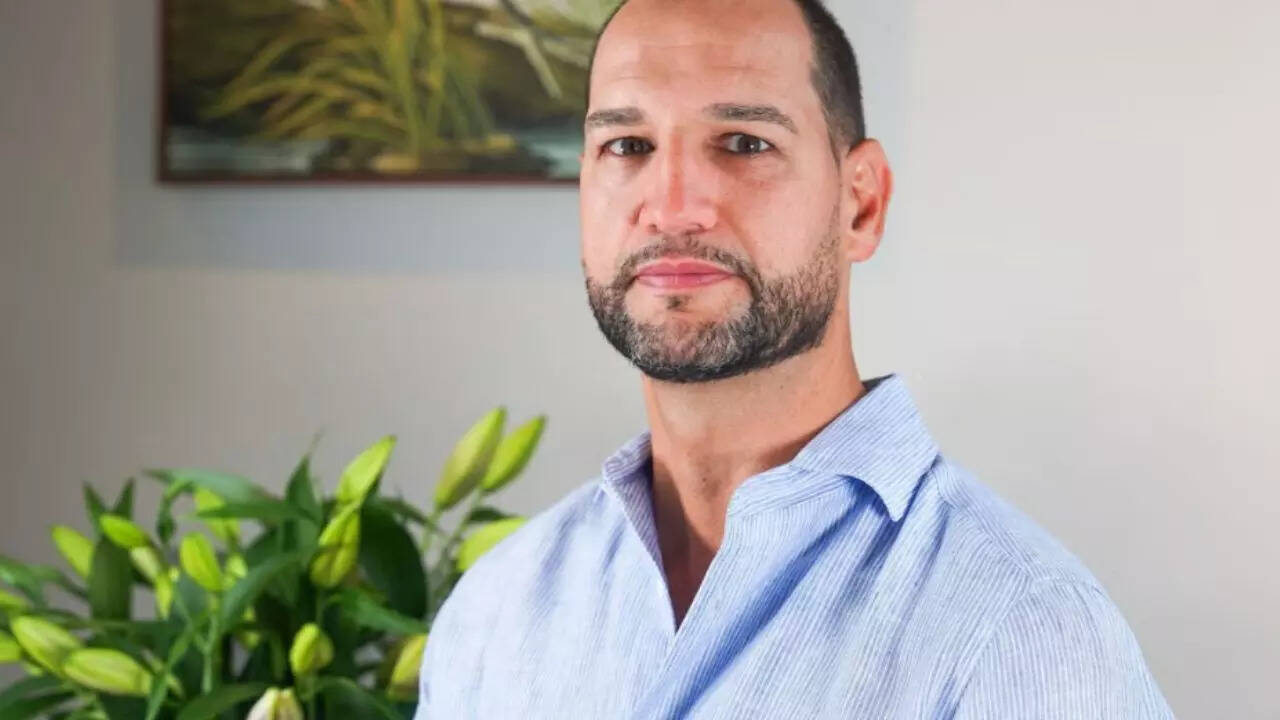Lyme disease can quietly take hold of a life, often going undetected for years. This was the case for Frédéric Roscop, who contracted the infection as a child but wasn’t diagnosed until his mid-thirties. For over two decades, he struggled with a range of debilitating symptoms, from chronic fatigue and joint pain to cognitive challenges and mental health issues, yet doctors repeatedly misdiagnosed him with depression and hypochondria. His journey highlights the frustration, isolation, and confusion faced by those living with chronic Lyme disease. Through relentless determination, alternative therapies, and innovative approaches, Frédéric eventually uncovered the root cause of his illness, rebuilt his health, and now uses his experience to help others navigate the complexities of long-term Lyme disease.
Frédéric Roscop’s childhood in Dordogne: Early signs of lyme disease
Frédéric’s childhood in Dordogne, France, was idyllic on the surface—he helped local farmers collect eggs and herd cows and spent countless hours exploring nature. But this curiosity came at a hidden cost: repeated exposure to ticks.Ticks are carriers of Borrelia bacteria, the pathogen behind Lyme disease. Frédéric’s early tick bites were not properly treated—the common practice at the farm involved brushing him in an iron bath rather than removing ticks promptly and administering antibiotics.Soon, Frédéric developed red, circular rashes on his skin, known today as Erythema migrans, or the “bullseye rash,” a hallmark of early Lyme disease. However, in the 1970s, awareness of Lyme disease was almost nonexistent. As reported by The Independent, Doctors misattributed his symptoms to a simple allergic reaction, leaving the infection untreated and allowing it to silently progress.
The hidden impact of lyme disease in childhood
Even as a child, Frédéric experienced subtle but chronic symptoms. His growth and development were affected, including delayed puberty and unexplained weight gain linked to hormonal imbalances and gastrointestinal disruption caused by Lyme disease.Interestingly, Lyme disease can cause hyperactivity and sensitivity, mimicking symptoms of ADHD. Frédéric often felt restless, yet exhausted—a paradox that made it difficult for him to focus in school. By age eight, he was seeing a psychotherapist, who recommended exercise as a remedy. While these therapies addressed superficial symptoms, they never targeted the underlying bacterial infection.

Source: The Independent
Chronic lyme disease worsens with misdiagnosis
Frédéric’s condition worsened after age 16, particularly following surgery for a broken nose. Surgical stress and immune suppression allowed Lyme disease to progress more aggressively, causing systemic chronic symptoms. These included muscle and joint pain, extreme fatigue, cognitive dysfunction, emotional dysregulation, hair loss, gut issues, heart inflammation (Lyme carditis), and even impotence.The symptoms were physically and psychologically debilitating. Despite this, medical professionals continued to misdiagnose him, labeling him as suffering from depression or hypochondria. The lack of recognition for chronic Lyme disease left Frédéric feeling isolated, misunderstood, and frustrated.
Misdiagnosis and desperate treatments for lyme disease
By his late twenties, Frédéric experienced his first severe panic attack following the news of his estranged father’s death. At the time, he was a trained osteopathic practitioner in London, yet even his medical knowledge did not prevent years of misdiagnosis.He experimented with every available therapy—homeopathy, Chinese herbs, Ayurvedic treatments, supplements, saunas, and bioresonance—but nothing resolved the underlying infection. Each failed attempt compounded the physical, emotional, and financial strain, reinforcing a sense of hopelessness.
Frédéric diagnoses chronic lyme disease confirmed
At age 35, Frédéric treated a young patient who displayed symptoms of severe brain inflammation (encephalitis) caused by Lyme disease. Recognizing these signs in his patient triggered a realization: his own symptoms mirrored those of Lyme disease.A private blood test in Germany confirmed the diagnosis, revealing Lyme disease with seven co-infections. This marked the beginning of a structured treatment plan, although challenges remained. His GP could not assist due to limited testing regulation in the UK, forcing him to seek private care at a specialist hospital.
Challenges of chronic lyme treatment
Treatment for late-stage Lyme disease is often complicated. Frédéric initially tried oral antibiotics but experienced a Jarisch-Herxheimer reaction, where toxins released from dying bacteria worsened his symptoms. His liver, damaged from years of chronic infection, struggled to detoxify these byproducts, necessitating intravenous antibiotics.Recovery was slow, costly, and often painful. Chronic Lyme infections, especially when left untreated for decades, can resist standard treatments, requiring persistent care and monitoring. Frédéric describes the process as a multi-year journey, testing both his physical endurance and mental resilience.Refusing to give up, Frédéric integrated Western medicine with complementary therapies, drawing on his experience as both a patient and a practitioner. Through experimentation and self-study, he developed Liquid Intelligence, a supplement designed to restore immunity, rebalance bodily functions, and aid in detoxification.By combining nutritional therapy, alternative medicine, and conventional treatments, Frédéric eventually achieved symptom relief and began rebuilding his life.
Life after Lyme: Recovery and relearning normalcy
Today, Frédéric has been symptom-free for seven years. However, recovery involved more than eliminating the infection; it required relearning how to live without the disease and restoring confidence in his body and mind.His journey also inspired him to help others navigate chronic conditions, offering guidance to patients and families who, like him, face years of misdiagnosis and ineffective treatment.Lyme disease remains underdiagnosed and misunderstood, even in modern healthcare. Frédéric’s story underscores the importance of early detection, proper testing, and integrative treatment approaches. Public recognition, aided by celebrities like Bella Hadid and Justin Bieber, has helped increase awareness, but challenges in diagnosis and management persist.Also Read | Nighttime symptoms that reveal your heart, liver, and kidney health: Early earning signs you shouldn’t ignore











